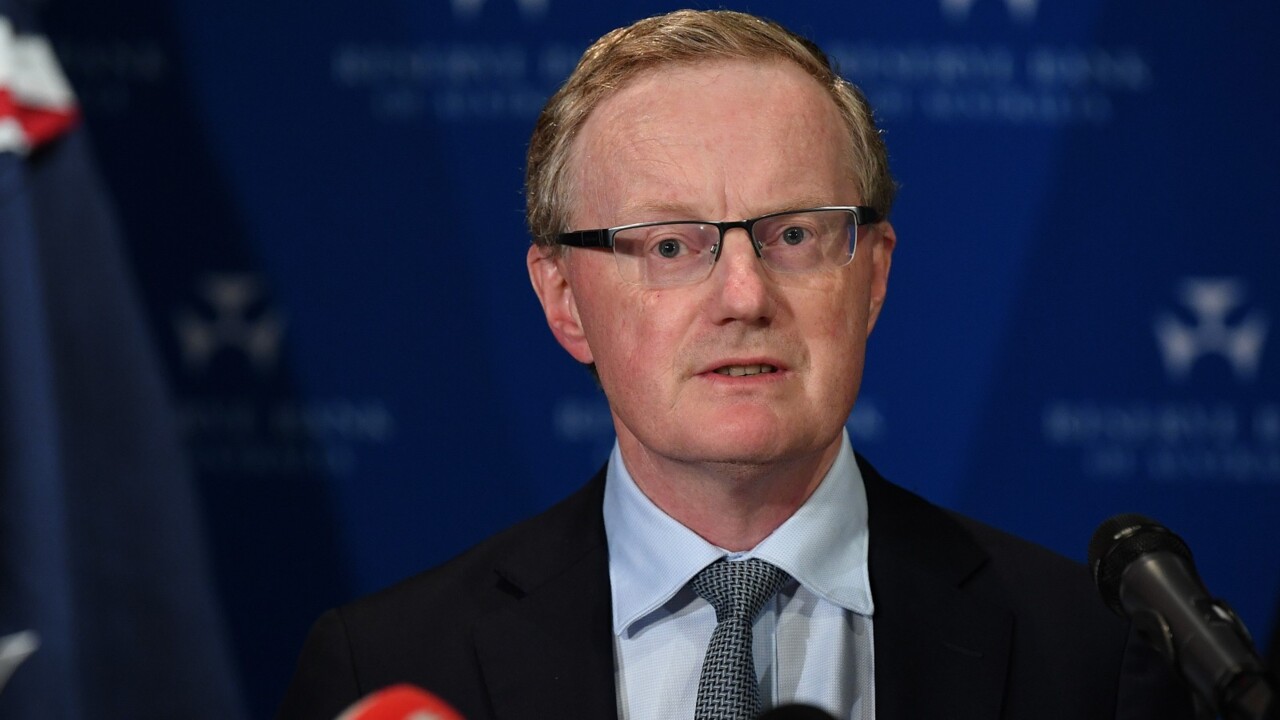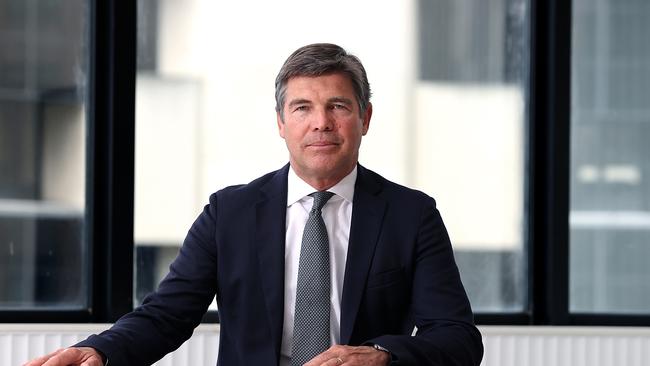BOQ earnings hurt by uncertain economic outlook, inflation
The bank, led by Patrick Allaway, has flagged uncertainty around interest rates and inflation as it revealed a fall in interim earnings, while operating costs rose.

Bank of Queensland has warned of further earnings volatility amid rising costs and “irrational” competition for mortgages, as it flagged it faced possible fines from regulators from weaknesses in its risk and control systems.
Announcing the interim results that it foreshadowed last week, BOQ said a deteriorating outlook led to higher bad debt provisions in the first half of 2023, with shrinking margins and higher costs expected to continue to hurt earnings in the second half.
The margin “compression will continue with heightened competition both across mortgages and deposits impacting them,” BOQ chief executive Patrick Allaway said on Thursday.
BOQ in October had been aiming to maintain so-called “positive jaws” this fiscal year — meaning its income growth exceeding its expense growth — but pressed by analysts during a call on Thursday, Mr Allaway had to walk away from that target.
“With current industry headwinds and where we’re currently trading, we are not holding on to the positive jaws guidance,” he said.
“We do not want to write business below our cost of capital. We will sit this out. We are not going to participate in an irrational market.”
Cash earnings fell 4 per cent to $256m, driven by a $35m loan impairment provision it booked in the first half, while margins were hit from increased competition and higher costs of funding as interest rates rose.
The provision compared to a $15m impairment credit last year, and reflected “continued uncertainty around the future economic impact of inflation and interest rate pressures, as well as recently observed and forecast declines in house prices.”
BOQ on Friday had already reported a 98 per cent fall in interim statutory profit to $4m driven by $260m in impairments and cost provisions, but had not provided details on its operating performance for the half.
The bank said it faced the risk of fines over its previously disclosed system deficiencies around compliance with anti-money laundering and counter-terrorism financing laws, operational resilience, and risk culture and governance.
Sanctions from the banking regulator, Australian Prudential Regulation Authority, or the financial crime watchdog Austrac were a possibility, it said.
“There is a risk that regulatory engagements, including those with APRA and Austrac in relation to the matters discussed previously, and other developments may lead to the imposition of fines, sanctions or other enforcement action in relation to the group’s compliance with relevant laws and regulations,” it said in its regulatory filing.
There was also the risk that the group incurs increased costs in people, processes and systems in order to meet regulators’ requirements.
In an interview with The Australian, Mr Alloway said the bank was also very focused on cyber security risks to protect the bank and its customers.
“We are investing more in strengthening our operational resilience. Criminal activity is becoming very sophisticated and is escalating,” Mr Alloway said.
“It is something we are very aware of and I’m very focused on.”
Operating expenses rose 7 per cent to $495m, reflecting higher inflation and higher technology costs. These costs would “escalate” in the second half.
The hike in costs was on top of a $60m provision the bank announced last Friday, which it said would pay for a three-year plan to improve risk management and compliance systems after regulators asked for improvements.
“We know this is unsustainable,” Mr Allaway said. “We’re not comfortable with the expense growth in the business.”
BOQ began a plan to cut costs at the beginning of the year but the work was not complete and benefits would only flow through from 2024.
CLSA banking analyst Ed Henning said BOQ faces significant cost headwinds.
“They are trying to address the cost base but they need to invest, which will see upfront costs,” he said.

BOQ reported a net interest margin of 1.79 per cent, up four basis points from 1.75 the previous half. However, tough competition in deposits and mortgages had “materially reduced” that tailwind.
BOQ shares closed steady at $6.36. The shares have been under pressure in the past year as the growth-focused bank has faced challenges adapting to the fast-paced changes in technology in the sector. They were trading at over $8 per share a year ago.
“BOQ’s share price has absorbed much of the bad news from Friday’s prerelease around the required investment in risk management capabilities and goodwill writedown,” UBS analysts told investors in a note.
The bank warned investors the economic outlook was expected to slow down “into 2024” due to higher inflation and the rapid rise in interest rates.
Business loan impairments rose to $65m from $54m in the previous half, while arrears also rose 15 per cent across its loan portfolio.
Asset finance 90-day arrears rose to 57 basis points, from 24 basis points the previous half, mainly driven by clients in the construction sector, while commercial lending arrears rose to 74 basis points, from 61 basis points. Housing arrears were 5 basis point higher to 60 basis points.
While the arrears levels had surged, they remained below historical averages, the bank said.
The lower earnings and higher provisions led to a 2c dividend cut to 20c a share, down from 22c for the same period a year ago.
The bank reported a 10 per cent fall in risk weighted assets during the half driven by its move to the BASEL III framework. That helped lift its core equity capital ratio by 114 basis points to 10.71 per cent.





To join the conversation, please log in. Don't have an account? Register
Join the conversation, you are commenting as Logout